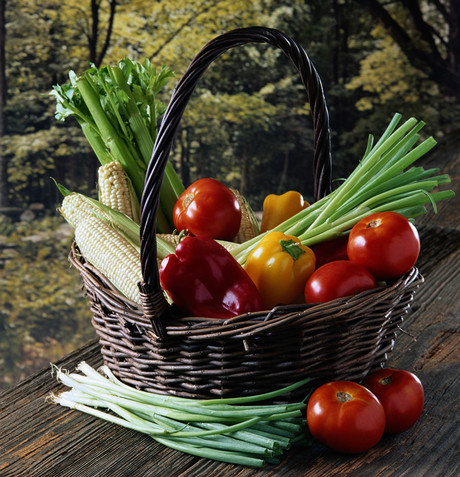What's driving the appetite for organics?

By 2018, the total value Australia’s organic industry is anticipated to exceed AU$2 billion. It was already worth $1.72 in 2014. Last year two-thirds of Australian households bought organic products. Why?
The 2017 Australian Organic Market Report claims that personal health concerns are the key driver for consumers switching to organics.
Highlights of the report include:
- Shoppers said the trigger to make the switch to organic was a health crisis/issue affecting themselves or their family (18%).
- The top three perceived benefits of organics:
- chemical-free (83%)
- additive-free (75%)
- environmentally friendly (65%)
- The number of consumers who have become more aware of the impact of food, fibre (textiles) and cosmetics on the environment has risen from 32% in 2014 to 41% in 2016.
- Organic producers, processors and handlers have grown from 2567 in 2014 to 3751 in 2016 (up by 46%), with producers representing the largest group in Australia (2075).
Weighing into the Australian Organic Market Report is a national consumer survey conducted by Mobium Group, LOHAS (Life Styles of Health and Sustainability Australia) with 1024 households polled over one week in June 20161.
Key LOHAS survey findings included:
- Personal health for the buyer and their family is the strongest driver for organic product purchases in 2016.
- 85% of all shoppers say an organic certification mark on a product would have influence on their purchase decision.
- The Australian Certified Organic (ACO) Bud logo is the most recognised certification mark — 46% of Australian consumers recognising this logo in 2016.
The Australian Organic Market Report revealed Australia officially holds the largest amount of organically managed farmland in the world at 53%; however, this is still not enough to meet growing demand locally.
September is Australian Organic Month and more information can be found at http://austorganic.
I find some of the reasons behind people’s move to organics incomprehensible. Major lifestyle changes following a health scare I understand but moving to organics because they are ‘chemical-free’ I do not understand. Everything, including everything organic, is made of chemicals.
Additive-free, pesticide residue-free, even GMO-free I get. But really, chemical-free?
While we are going down the food safety path, I would like to put in a little plug for preservatives. In truth, preservatives have probably saved more lives than antibiotics, just because they have stopped the consumption of pathogens. I understand that modern refrigeration technologies and transport logistics have lessened our reliance on preservatives but I don’t think we should throw out the baby with the bathwater and unilaterally condemn them.
What are your thoughts on the use of preservatives, the groundswell towards organics and other food industry trends?
Have your say and write to me at jwoodhouse@wfmedia.com.au.
What's new on the shelf
From classic reinspired ice cream to West African flavours in a jar and whiskey aged in a gaol,...
What's new: six on the shelf
From classic chocolatey flavours reinspired to Korean delicacies, have a look at what's new...
What's new on the shelf?
From Aussie/American fusion-inspired hot sauce to a canned protein drink for gamers, have a look...














